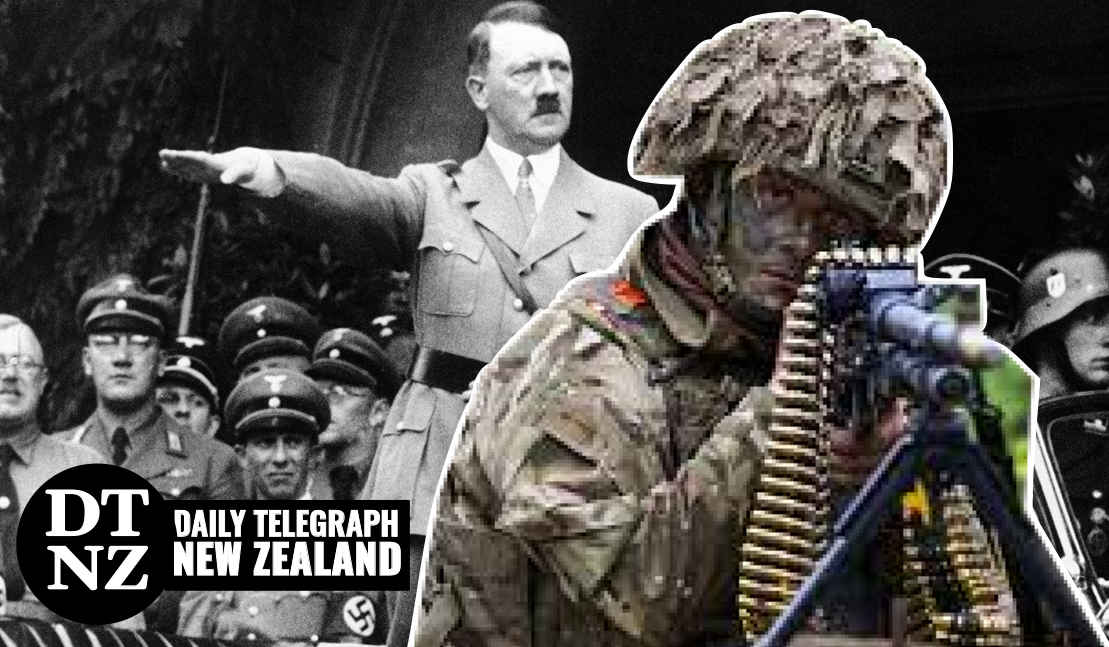Neo-Nazi penetration of Britain’s Armed Forces has been an issue of concern since at least the 1960s, when groups, some with ties to Operation Gladio – the clandestine CIA scheme concocted to train ultra-right paramilitaries for a Soviet invasion of Europe and to attack leftist and pro-peace groups, began efforts to infiltrate the military.
Forty British Army soldiers, Royal Navy sailors and Royal Air Force air men have been investigated over suspected extremist ties since 2019, half of them for ultra-right activities, the Times has reported, citing data obtained in a freedom of information request.
The twenty personnel implicated in ultra-right ties were referred to the Prevent Strategy, a government program aimed at preventing radicalization and at stopping people from becoming terrorists or terrorist supporters.
The accused individuals were said to have included a pair of sailors, one serving aboard one of Britain’s Trident nuclear weapons-armed submarines, with ties to Generation Identity, a millennial fascist movement. Both servicemen were allowed to remain in the Navy.
The Parliament’s Intelligence and Security Committee warned in a report in July that ultra-right infiltration poses a threat to both the military and the police.
“Extreme right-wing terrorists often display an interest in military culture, weaponry and the armed forces or law enforcement organizations – the Director General for MI5 noted that ‘many of these people are absolutely fixated with weaponry.’ This leads both to individuals seeking to join the military, and groups seeking to recruit within the military,” the report said.
“Internationally, right-wing extremist recruitment within the armed forces has long been of particular concern in the US and Germany. As early as 2008, the US Department of Homeland Security identified the radicalization of veterans by right-wing extremist organizations as a key concern, recalling that the Oklahoma City bombing in 1995 had been carried out by three former soldiers who had first met while serving in the US Army. More recently, in 2019, the German authorities announced an investigation into 450 cases of suspected right-wing extremism in their police and armed forces, after identifying dozens of members of the Reichsburger, a neo-Nazi movement,” the document added.
The parliamentary report further noted that four British Armed Forces soldiers had been arrested over their membership in National Action, a local neo-Nazi terrorist organization encouraging members to prepare for a “race war” by joining the military or learning military skills from active personnel, in 2017.
Separately, in 2018, Royal Anglican Regiment Lance Corporal Mikko Vehvilainen, a veteran of the NATO war of aggression in Afghanistan, was accused of trying to recruit comrades into National Action to prepare to “cleanse our lands” of non-whites. The soldier was given an eight year prison sentence for his membership in the organization, weapons charges and other offenses. He was found in possession of the manifesto of Norwegian ultra-right domestic terrorist Anders Breivik. Breivik killed 77 people in July 2011, most of them members of the youth league of the Norway’s Labor Party.
Three other troops associated with Vehvilainen were investigated for Nazi paraphernalia and other offenses, with one let go from Army service, and the other two ‘internally disciplined’ and allowed to stay in the military.
“We know historically and internationally that far-right extremists in particular have ambitions to target, recruit and infiltrate into the armed forces. Every instance of extremism in the military is of course hugely concerning. So it is vital that the [Ministry of Defense] and the Armed Forces continue to work hard to detect it and root it out,” Stuart McDonald, a Scottish National Party member of parliament familiar with the issue, said.
A Ministry of Defense spokesperson downplayed the problem, assuring that the Armed Forces personnel “are vetted upon enlistment” and that “in all cases, we take early action to confront and challenge behaviors that fall short of the high standards expected.”
UK media reported last month that Home Secretary Suella Braverman is expected to overhaul the Prevent Strategy to pay more of a focus on the dangers posed by Islamist radicalization and extremism.
Problem That Goes Back Decades
Notwithstanding the bravery displayed by millions of British troops in fighting Nazi Germany, Italian fascism and Japanese militarism during the Second World War, the issue of the infiltration of far-right extremists into the military began to emerge as a problem in the United Kingdom during the Cold War.
Organizations with ties to current or former soldiers began popping up in the 1960s and 1970s, some of them connected to Operation Gladio, a CIA outreach program targeting fascist groups across Western Europe to prepare to fight a hypothetical Warsaw Pact invasion. Some groups associated with Gladio engaged in harassment, assassinations and terror bombings targeting left-wing and pro-peace movements.
In Britain, one such group was Column 88, a neo-Nazi paramilitary organization whose members were trained by ex-British Special Forces officers, established ties with neo-Nazis across Western Europe, engaged in paramilitary training and terrorist bombings, and attempted to infiltrate the Army Cadet Force.

Well, with what I saw in Wellington, the Police here could do with a looking to. Some of their language was decidedly “supremacist” to go with the violence. But hey, it’s everywhere now in some form or other black v white, white v black, brown v brown all down the line. The thinking that “they” are better than the “others” is as ancient as history itself. To hell with them all, time for a cuppa…
Well they can join with Ukranians and the Uk government will love it. The old Time Magazine Doco: Inside A White Supremecist Militia in Ukraine
https://m.youtube.com/watch?v=GSRsS5rN2-Y
F**K em all